
Supercars of the 80s – Ferrari Testarossa
Step back into the 80s with the iconic Ferrari Testarossa, the symbol of style and speed that defined a decade
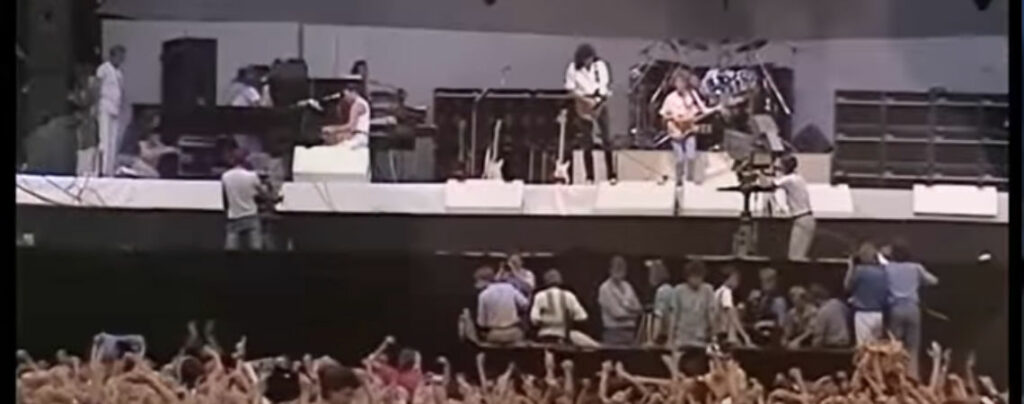
1st: The first mobile phone calls in the UK are made.
7th: Nine striking miners are jailed for arson.
10th: The Sinclair C5, a battery-assisted recumbent tricycle, designed by the British inventor Clive Sinclair is launched.
Eight people are killed by a gas explosion at a block of flats in Putney.
16th: London’s Dorchester Hotel is bought by the Sultan of Brunei.
17th: British Telecom announces it is going to phase out its iconic red telephone boxes.
23th: A debate in the House of Lords is televised for the first time.
29th: Margaret Thatcher becomes the first post-war Prime Minister to be publicly refused an honorary degree by Oxford University.
10th: Nine people are killed in a multiple crash on the M6 motorway.
16th: civil servant Clive Ponting resigns from the Ministry of Defence after his acquittal of breaching section 2 of the Official Secrets Act 1911 concerning the leaking of documents relating to the sinking of the ARA General Belgrano during the Falklands War.
Embed from Getty Images19th: EastEnders, the BBC1 soap opera set in the fictional London Borough of Walford, debuts.
25th: Nearly 4,000 striking miners return to work, meaning that only just over half of the miners are now on strike.
3rd: The devastating UK Miners’ Strike, involving at its peak 142,000 mineworkers; ends after one year.
7th: Two IRA members are jailed for 35 years at the Old Bailey for plotting the bombing campaign across London during 1981.
11th: Mohammed Al Fayed buys the London-based department store company Harrods.
13th: Rioting breaks out at the FA Cup quarter-final between Luton Town and Millwall at Kenilworth Road, Luton; hundreds of hooligans tear seats from the stands and throw them onto the pitch before a pitch invasion takes place, resulting in 81 people (31 of them police officers) being injured. The carnage continues in the streets near the stadium, resulting in major damage to vehicles and property.
19th: After beginning the year with a lead of up to eight points in the opinion poll, the Conservatives suffer a major blow as the latest MORI poll puts them four points behind Labour, who have a 40% share of the vote.
Ford launches the third generation of its Granada. It is sold only as a hatchback, in contrast to its predecessor which was sold as a saloon or estate, and in continental Europe it will be known as the Scorpio.
11th: An eighteen-month-old boy becomes the youngest person in the UK to die of HIV/AIDS.
22nd: Construction of Japanese carmaker Nissan’s new factory at Sunderland, Tyne and Wear, begins. The first cars are expected to be produced next year.
30th: Bernie Grant, born in Guyana, becomes the first black council leader when he is elected as leader of the Labour-controlled London Borough of Haringey council.
2nd: The SDP–Liberal Alliance makes big gains in local council elections.
11th: A fire engulfs a wooden stand at the Valley Parade stadium in Bradford during a football match, killing 56 people (54 Bradford City supporters and two Lincoln City supporters) and injuring more than 200 others.
A 14-year-old boy is killed, 20 people are injured and several vehicles are wrecked when Leeds United football hooligans riot at the Birmingham City stadium and cause a wall to collapse.
13th: The Dire Straits album Brothers In Arms is released; it becomes the first compact disc to sell over 1,000,000 copies.
15th: Everton, who have already clinched their Football League title for fifteen years, win the European Cup Winners’ Cup (their first European trophy) with a 3-1 win over Rapid Vienna in Rotterdam.
16th: Two South Wales miners are sentenced to life imprisonment for the murder of taxi driver David Wilkie. Dean Hancock and Russell Shankland, both twenty-one years old, dropped a concrete block on Mr. Wilkie’s taxi from a road overbridge in November last year.
Scientists of the British Antarctic Survey discover the ozone hole.
18th: Manchester United win the FA Cup for the sixth time in their history with a 1–0 win over Everton in the final at Wembley Stadium. The only goal of the game is scored by twenty-year-old Northern Irish forward Norman Whiteside, who scored in United’s last FA Cup triumph two years earlier.
29th: in the Heysel Stadium disaster at the European Cup final in Brussels, 39 football fans die and hundreds are injured. Despite the tragedy, the match is played and Juventus beat Liverpool 1-0.
31st: the Football Association bans all English football clubs from playing in Europe until further notice in response to the Heysel riots. Thatcher supports the ban and calls for judges to hand out stiffer sentences to convicted football hooligans.
1st: Battle of the Beanfield, Britain’s largest mass arrest and the effective end of Stonehenge Free Festivals.
2nd: In response to the Heysel Stadium disaster four days ago, UEFA bans all English football clubs from European competitions for an indefinite period, recommending that Liverpool should serve an extra three years of exclusion once all other English clubs have been reinstated.
6th: Birmingham unveils its bid to host the 1992 Summer Olympics, which includes plans for a new £66,000,000 stadium.
13th: The James Bond film A View to a Kill is released, marking the final appearance by Roger Moore as the fictional secret agent after six films since 1973.
25th: Police arrest thirteen suspects in connection with the Brighton hotel bombing of 1984.
29th: Patrick Magee is charged with the murder of the people who died in the Brighton bombing eight months ago.
4th: 13-year-old Ruth Lawrence achieves a first in Mathematics at the University of Oxford, becoming the youngest British person ever to earn a first-class degree and the youngest known graduate of the university.
Unemployment for June falls to 3,178,582 from May’s total of 3,240,947, the best fall in unemployment of the decade so far.
13th: Live Aid pop concerts in London and Philadelphia raise over £50,000,000 for famine relief in Ethiopia.
24th: Country code top-level domain .uk registered.
29th: Despite unemployment having fallen since October last year, it has increased in 73 Conservative constituencies, according to government figures.
7th: White House Farm murders at Tolleshunt Darcy, Essex; 28-year-old Sheila Caffell is reported to have shot dead her six-year-old twin sons, and also her adoptive parents Nevill and June Bamber, before turning the gun on herself. Her 24-year-old brother Jeremy, who was also adopted, alerted the police to the house after telling them that he had received a phonecall from Nevill Bamber to tell him that his sister had “gone berserk” with a rifle.
13th: The first UK heart-lung transplant is carried out at the Harefield Hospital in Middlesex. The patient is three-year-old Jamie Gavin.
The Sinclair C5 ceases production after just seven months and fewer than 17,000 units.
22nd: 55 people are killed in the Manchester air disaster at Manchester International Airport when a British Airtours Boeing 737 burst into flames after the pilot aborts the take-off.
24th: Five-year-old John Shorthouse is shot dead by police at his family’s house in Birmingham, where they were arresting his father on suspicion of an armed robbery committed in South Wales.
1st: a joint French-American expedition locates the wreck of the RMS Titanic.
4th: The first photographs and films of the RMS Titanic’s wreckage are taken, 73 years after it sank.
6th: The Scottish Exhibition and Conference Centre opens in Glasgow.
8th: Jeremy Bamber is arrested on suspicion of murdering his adoptive parents, sister and two nephews at their Essex farmhouse last month, after police had originally believed that his sister had killed herself after shooting her parents and sons.
9th: Rioting, mostly motivated by racial tension, breaks out in the Handsworth area of Birmingham.
Embed from Getty Images10th: The riots in Handsworth escalated, with mass arson and looting resulting in thousands of pounds worth of damage, leaving several people injured, and resulted in the deaths of two people who died when the local post office was petrol-bombed. One of the fatalities was the owner of the post office.
Scotland national football team manager Jock Stein, 62, collapses and dies from a heart attack at the end of his team’s 1–1 draw with Wales at Ninian Park, Cardiff, which secured Scotland’s place in the World Cup qualification play-off.
11th: The rioting in Handsworth ended, with the final casualty toll standing at 35 injuries and two deaths. A further two people are unaccounted for.
The England national football team secures qualification for next summer’s World Cup in Mexico with a 1–1 draw against Romania at Wembley. Tottenham midfielder Glenn Hoddle scored England’s only goal.
Enoch Powell, the controversial former-Conservative MP who was dismissed from the Shadow Cabinet seventeen years earlier for his Rivers of Blood speech on immigration, states that the riots in Handsworth were a vindication of the warnings he voiced in 1968.
17th: Margaret Thatcher’s hopes of winning a third term in office at the next general election are thrown into doubt by the results of an opinion poll, which shows the Conservatives in third place on 30%, Labour in second place on 33% and the SDP–Liberal Alliance in the lead on 35%.
28th: A riot in Brixton erupts after an accidental shooting of a woman by police. One person dies in the riot, fifty are injured and more than 200 are arrested.
Manchester United’s excellent start to the Football League First Division season sees them win their tenth league game in succession, leaving them well-placed to win their first league title since 1967.
29th: Jeremy Bamber is re-arrested upon his return to England after two weeks on holiday in France and charged with five counts of murder.
1st: Neil Kinnock makes a speech at the Labour Party Conference in Bournemouth attacking the Militant group in Liverpool.
Lord Scarman’s report on the riots in Toxteth and Peckham blames economic deprivation and racial discrimination.
Economists predict that unemployment will remain above the 3,000,000 mark for the rest of the decade.
5th: Mrs. Cythnia Jarrett, a 49-year-old black woman, dies after falling over during a police search of her home on the Broadwater Farm estate in Tottenham, London.
6th: PC Keith Blakelock is fatally stabbed during the Broadwater Farm Riot in Tottenham, London, which began after the death of Cynthia Jarrett yesterday. Two of his colleagues are treated in hospital for gunshot wounds, as are three journalists.
Embed from Getty Images15th: The SDP-Liberal Alliance’s brief lead in the opinion polls is over, with the Conservatives now back in the lead by a single point over Labour in the latest MORI poll.
17th: The House of Lords decides the legal case of Gillick v West Norfolk and Wisbech Area Health Authority,which sets the significant precedent of Gillick competence, i.e. that a child of sixteen or under may be competent to consent to contraception or – by extension – other medical treatment without requiring parental permission or knowledge.
24th: Members of Parliament react to the recent wave of rioting, by saying that unemployment is an unacceptable excuse for the riots.
28th: Production of the Peugeot 309 begins at the Ryton car factory near Coventry.
30th: Unemployment is reported to have risen in nearly 70% of the Conservative held seats since October 1984.
31st: The two miners who killed taxi driver David Wilkie in South Wales eleven months earlier, have their life sentences for murder reduced to eight years for manslaughter on appeal.
1st: The Queen Mother commissions aircraft carrier HMS Ark Royal.
Unemployment for September falls by nearly 70,000 to less than 3,300,000.
5th: Mark Kaylor defeats Errol Christie to become the middleweight boxing champion, after the two brawl in front of the cameras at the weigh-in.
9th: The Prince and Princess of Wales arrive in the United States for a visit to Ronald Reagan in Washington, D.C.
15th: Anglo-Irish Agreement signed at Hillsborough Castle. Treasury Minister Ian Gow resigns in protest at the deal.
17th: The Confederation of British Industry calls for the government to invest £1,000,000,000 in unemployment relief – a move which would cut unemployment by 350,000 and potentially bring it below 3,000,000 for the first time since late-1981.
18th: A coach crash on the M6 motorway near Birmingham kills two people and injures 51 others.
19th: the latest MORI poll shows that Conservative and Labour support is almost equal at around 36%, with the SDP–Liberal Alliance’s hopes of electoral breakthrough left looking bleak as they have polled only 25% of the vote.
22nd: Margaret Thatcher is urged by MPs to call a general election for June 1987, despite the deadline not being until June 1988 and recent opinion polls frequently showing Labour and the Alliance equal with the Conservatives, although the Conservative majority has remained well into triple figures.
25th: Department store chains British Home Stores and Habitat announce a £1,500,000,000 amalgamation.
27th: Labour Party leader Neil Kinnock suspends the Liverpool District Labour Party amid allegations that the Trotskist Militant group was attempting to control it.
29th: A gas explosion kills four people in Glasgow.
Gérard Hoarau, exiled political leader from the Seychelles, is assassinated in London
4th: Scotland’s World Cup qualification is secured by a goalless draw with Australia in the play-off second leg in Sydney.
5th: It is announced that unemployment fell in November, for the third month running. It now stands at 3,165,000.
25th: Charitable organisation Comic Relief is launched.
BBC show the feature Only Fools and Horses “To Hull and Back” The Christmas Number one was “Merry Christmas Everyone” by Shakin’ Stevens.
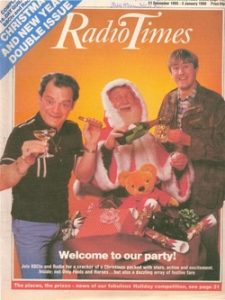
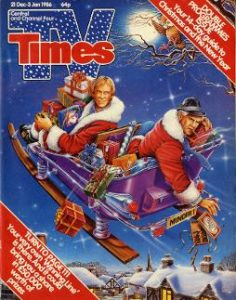
26th: Rock star Phil Lynott, formerly a member of the band Thin Lizzy, is rushed to hospital after collapsing from a suspected heroin overdose at his home in Berkshire.

Step back into the 80s with the iconic Ferrari Testarossa, the symbol of style and speed that defined a decade

Take a trip down memory lane with these 20 iconic board games and toys that defined our 1980s childhood in the UK.

Immerse yourself in nostalgia with this collection of iconic 1980s UK TV adverts – a true blast from the past!

Tina Turner, the Queen of Rock ‘n’ Roll, whose life and career became a symbol of resilience and triumph, has left an enduring legacy
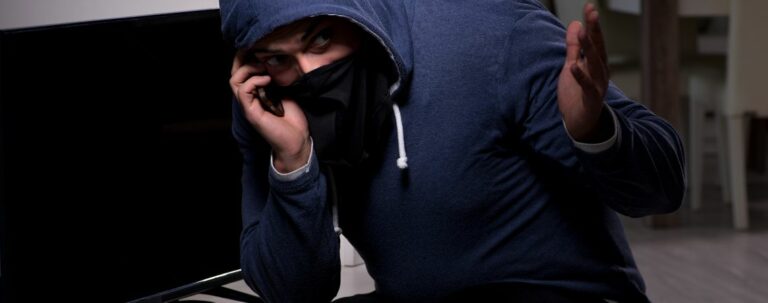
Uncover the Top 10 UK TV Villains of the 1980s: A journey through the most notorious and memorable antagonists of the decade
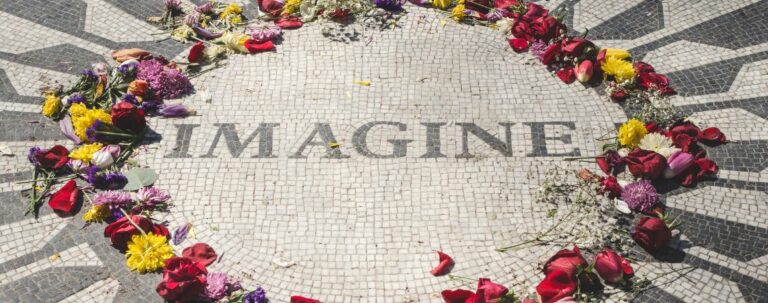
1980 saw the first CND rallies, the Alton Towers theme park opening and the murder of John Lennon in New York. The Moscow Olympics was the sport highlight.
No Events